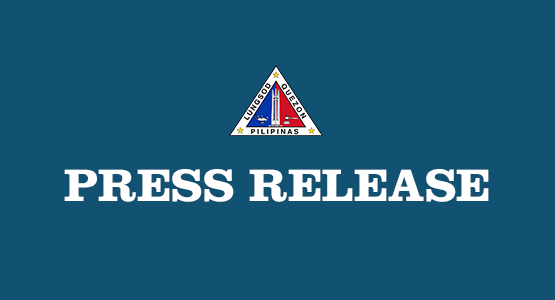
In compliance with the national government’s directive to resume road clearing operations in general community quarantine (GCQ) areas, the Quezon City government has released localized guidelines to take into account the ongoing coronavirus disease 2019 (COVID-19) pandemic.
In Memorandum Circular No. 2020-145 issued by the Department of the Interior and Local Government (DILG), the road clearing operations on national and secondary roads and Mabuhay Lanes will be conducted starting Monday (Nov. 16) until January 15, 2021.
“While we see the importance of keeping our roads cleared of any obstruction, we must also adjust our operation in the light of the ongoing pandemic,” Mayor Joy Belmonte said in her memorandum.
“Kaya sa pagsasagawa natin ng road clearing operations, nakasaalang-alang palagi ang pagsunod sa itinakda nating minimum health protocols upang maiwasan ang pagkalat ng COVID-19,” she added.
In her memorandum, Belmonte ordered the Task Force Road Clearing 2.0, which she formed way back in February to conduct the second part of road clearing operations, to ensure compliance with the DILG’s directive.
The Task Force is also tasked to coordinate with concerned national government agencies having jurisdiction, projects, or other responsibilities over national and secondary roads and Mabuhay Lanes within the City’s jurisdiction.
It is also mandated to coordinate with barangays to ensure that national and secondary roads and Mabuhay Lanes assigned to their responsibility are being maintained properly.
Aside from portions of national and secondary roads and Mabuhay Lanes turned over to them, barangays will be in charge of conducting road clearing operations in barangay roads and minor public-use streets within their jurisdiction.
According to Assistant City Administrator for Operations Alberto Kimpo, removing obstruction along the city’s new and existing bike lanes will be given special focus by the Task Force, with the help of the Task Force on Transport and Traffic Management (TF-TTM) and the Green Transport Division of the Department of Public Order and Safety (DPOS) and the concerned barangays.
“We must ensure that all bike lanes are obstruction-free to fulfill our intention of providing bikers a safe and smooth passage to their destination,” said Kimpo.
While the national government’s circular categorizes vending sites as road obstructions, Kimpo said the local government has decided to give organizers of vending sites and vendors some leeway in consideration of the effects of the pandemic on the local economy and the need for social distancing.
The barangays, national/city departments and private sector groups that established such temporary vending sites must provide the Task Force, thru the Market Development and Administration Department (MDAD), any form of documentation authorizing those sites.
“Vendors must likewise register with MDAD. Without authorization from MDAD, a vending site will be considered illegal and would be included in the clearing operations,” said Kimpo.
Organizers of the said vending sites are encouraged to have all their vendors wear uniform-colored shirts and display identification cards while vending. They are also required to enforce minimum health standards such as wearing of facemask and face shield by vendors and shoppers, as well as physical distancing of at least six feet.
Belmonte called on residents to cooperate with the city government in its effort to clear road obstructions.
The Mayor also urged citizens to report abusive enforcers through the city government’s official Facebook account (fb.com/qcgov) and via Hotline 122.
###







